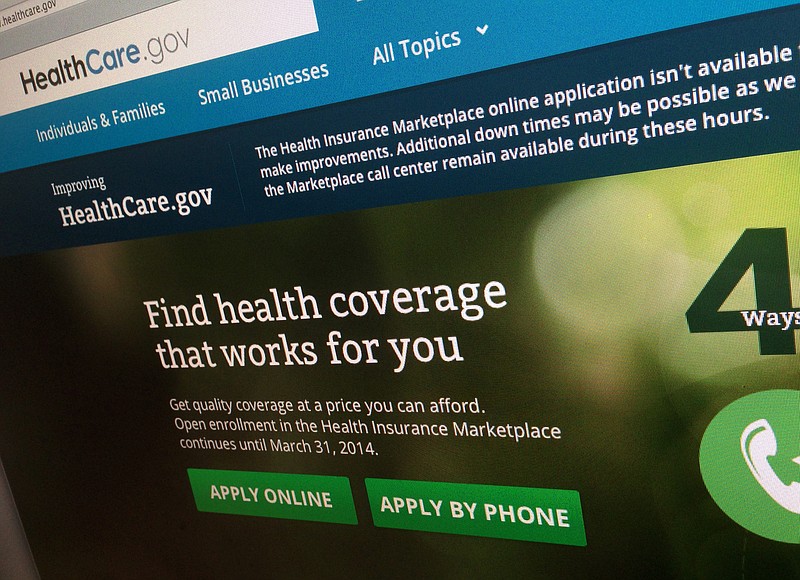The American Health Care Act is hardly what voters had in mind when - furious at the Affordable Care Act (ACA) - they elected a Republican House in 2010, a Republican Senate in 2014 and a Republican president in 2016.
The health care bill, introduced late Monday by House members, gets rid of many of the hated aspects of the current plan but keeps much of the same philosophy and doesn't add enough market-based reforms to make it a truly different animal.
The most flattering thing we can say is that it is a starting document. It must be examined in committees. It will get a cost. It may be discussed on the House and Senate floors. It may come before a joint House and Senate committee. It's a long journey before this introduced bill - we hope with many changes - could become the law after it's signed by President Donald Trump.

Let's start with what the bill gets right. The individual mandate that every American was forced to purchase health care insurance or pay a fine would be a goner. That aspect of the ACA was always un-American and unconstitutional, though the Supreme Court - by calling it a tax - provided the plan a lawful loophole.
The new plan also repeals the current law's penalties on larger employers who do not offer their employees coverage. When employers were forced to do that under current law, or pay a penalty, it weakened recovery from the Great Recession. Many employers first had to wait to see how the plan would shake out, then had to decide whether to purchase plans for their employees (or pay the penalty) or grow their business. Many couldn't do both.
In addition, it denies funding for one year to Planned Parenthood, a provider of many women's health services but also abortion. It also repeals taxes on upper-income earners, investors, high-dollar health care plans and medical device manufacturers.
Unfortunately, the bill maintains the same idea as the ACA in allowing the government to be the piggy bank for part of the health care cost of individuals. Where the current plan pays subsidies to the majority of people using Obamacare, the new plan would give qualified people tax credits to purchase their own insurance.
It also leaves in place, through 2019, federal financing for states to expand their Medicaid plans that cover mostly lower-income adults with no children living at home. In 2020, the plans would be frozen and would pay - at the same level - for those already under coverage. New enrollees would be provided payments at a lower level, though it's dubious if future re-election-minded congresses would allow such cuts.
The broader federal Medicaid program also would be overhauled from being open-ended to being limited based on an individual state's enrollment and costs, and the federal payments would be increased according to a government measure of medical inflation.
Like the Affordable Care Act, the new bill would protect people with pre-existing health problems from being denied coverage and allows young adults to remain on their parents' plan until they turn 26. Well before the ACA, these were Republican ideas for insurance reform, and Trump on the campaign trail vowed they would remain in place. However, they are expensive keepers, so a plan caveat would levy individuals a 30 percent surcharge on their premiums if they allowed their coverage to lapse.
Many conservatives hoped the new plan would be filled with many more market-based reforms and are left to take Trump and Health and Human Services Secretary Tom Price at their words when they said future phases of the plan would get rid of state lines to promote price competition, include other regulatory changes and involve as-yet unnamed other legislation.
However, that sounds too much like House Minority Leader Nancy Pelosi's famous statement in 2010 about having to pass the Affordable Care Act in order to find out what's in it.
If the first phase proves to be unworkable and we don't know what all the next phases entail, why would we want to go forward? That was exactly the problem with the ACA.
We have previously advocated a go-slow plan for repealing and replacing the Affordable Health Care Act. This House-created bill, apparently crafted from a previous plan by House Speaker Paul Ryan, appears to be on fast track without the united support of Republicans, without the details Americans need to know, without the reforms that would truly be a break from the disastrous current program and without as many individuals even having access to a health care plan that would be affordable.
This is an opportunity to get right all that was wrong with Obamacare. We hope Republicans will slow down and consider the consequences of doing otherwise.
